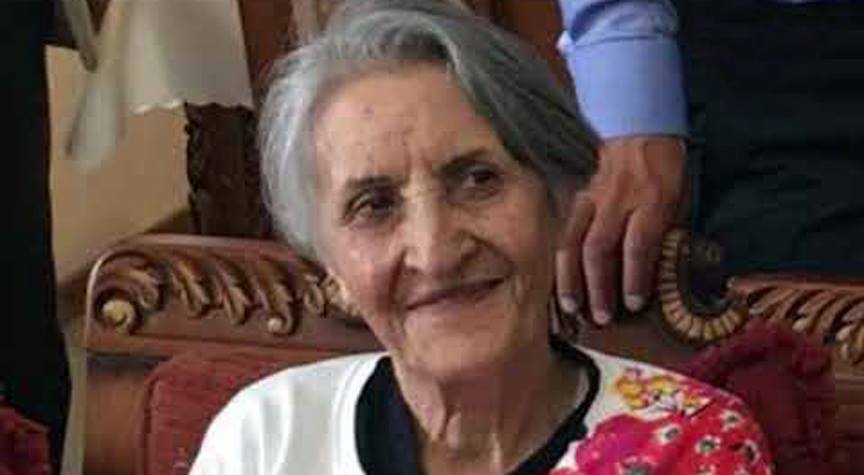CHRI – Iranian authorities have relocated the buried corpse of a deceased member of the Baha’i faith to a different cemetery without the family’s permission, the Center for Human Rights in Iran (CHRI) has learned.

After Shamsi Aghdasi Azamian died on October 22, 2018, in the town of Gilavand, her family buried her in a cemetery in the nearby city of Damavand in Tehran Province.
Days later, local authorities dug up her grave and buried her again without the family’s permission in Behesht Zahra Cemetery in Tehran, according to Farhad Sabetan, a spokesman for the Baha’i International Community at the United Nations.
“A few days after Ms. Aghdasi was buried, the police took her body out of the grave and told her family they cannot bury her there and that she has to be transferred to Tehran,” Sabetan told CHR on November 13.
He added: “The family explained that their religious beliefs do not allow them to transfer the body to Tehran because it is located more than an hour away from her home. The family consulted with the police and asked that the body be buried in a respectful manner but they were told it had already been transferred to Tehran and buried.”
The Baha’i spokesman told CHRI that Iranian authorities “believe that Baha’is should not be buried in Muslim cemeteries because they believe they are dirty heretics,” Sabetan told CHRI. “Some of these people call Baha’i cemeteries ‘kofrabad’ [city of heretics].”
“There is no law or tradition about transferring Baha’is to Tehran for burial in Behesht Zahra, which is also a so-called Muslim cemetery,” he added. “The security agencies may have interfered and prevented Ms. Aghdasi’s grave remaining in Gilavand.”
The Baha’i community is one of the most severely persecuted religious minorities in Iran. Iran’s Constitution does not recognize the faith as an official religion. Although Article 23 states that “no one may be molested or taken to task simply for holding a certain belief,” followers of the faith are denied many basic rights as one of the most severely persecuted religious minorities in the country.
“What they have done is immoral and disrespectful but it’s not the first time,” the Baha’i spokesman said. “Many Baha’i cemeteries have been destroyed with bulldozers, some of them at night to avoid attention, like the one in Shiraz, which was very old. The authorities flattened the cemetery, removed the corpses and built structures on the land.”
Fourteen Iranian Muslim intellectuals inside and outside Iran condemned the forced relocation of Aghdasi’s corpse in a statement published on November 9.
“The systematic denial of the rights of Baha’i citizens–especially threats to their life, the ban on their university education and employment, their lack of religious freedom and the disrespect towards the graves and remains of their deceased–are all despicable and shameful,” said the statement.
“These hideous actions are unbecoming of the peace-loving people of Iran and their proud ancient civilization,” it added.
The statement was signed by Mohammad Javad Akbarin, Abdolali Bazargan, Mohammad Borghaei, Reza Beheshti-Moez, Soroush Dabbagh, Ahmad Sadri, Mahmoud Sadri, Reza Alijani, Hassan Fereshtian, Hossein Kamali, Mehdi Momken, Yasser Mirdamadi, Sedigheh Vasmaghi and Hassan Yousefi Eshkevari.
 Shabtabnews In this dark night, I have lost my way – Arise from a corner, oh you the star of guidance.
Shabtabnews In this dark night, I have lost my way – Arise from a corner, oh you the star of guidance.


